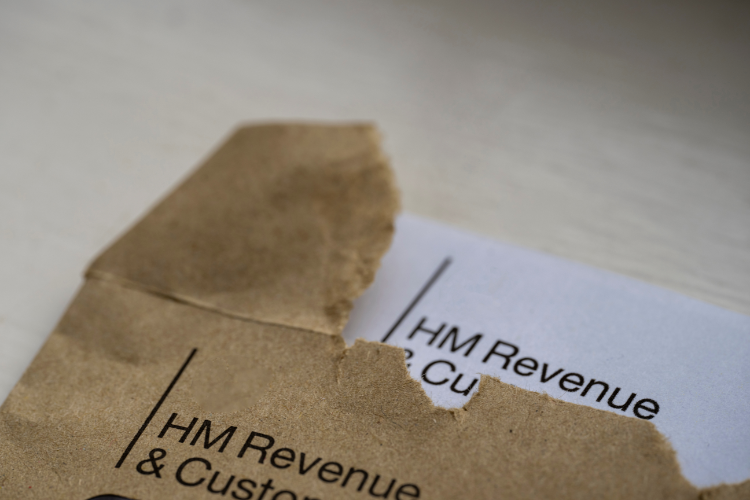Making Tax Digital: What Barristers Need to Know About MTD for VAT and Digital Record Keeping

Introduction: The Shift to Making Tax Digital (MTD)
Welcome to Barrister.expert, a brand division of Jack Ross Chartered Accountants. Founded in 1948, Jack Ross has served the legal community with accounting services for decades.
HMRC’s Making Tax Digital (MTD) initiative represents a seismic shift in the way businesses and self-employed persons, including barristers, manage their accounting and taxation affairs. If you are a barrister, understanding the nuances of MTD is crucial, as it directly impacts how you maintain accounting records, file VAT returns, and interact with HMRC. This guide provides a comprehensive understanding of MTD, digital record-keeping, and what you need to do to comply with the requirements.
MTD: Background on the HMRC Initiative
What is Making Tax Digital (MTD)?
Making Tax Digital (MTD) is an HMRC initiative that started in April 2019 and has since expanded its requirements and reach. It requires businesses with a taxable turnover above the VAT threshold of £85,000 to keep digital records and file their VAT returns using compatible software. Through this initiative, HMRC aims to become one of the most digitally advanced tax administrations in the world.
Who Must Comply with MTD?
The requirement to keep digital records and file VAT returns via functional compatible software applies to VAT-registered businesses. If you are a self-employed barrister and your taxable turnover is above the VAT threshold, you need to start taking steps to comply with MTD.
The Accountant’s Role
Consulting an accountant familiar with MTD for VAT can streamline the transition process. They can help you select the right accounting software and guide you through the digital record-keeping requirements set forth by HMRC.
Jack Ross Chartered Accountants offers bespoke accounting services for barristers ranging from yearly tax returns to advice on reducing tax liabilities. Use the contact form below and one of our specialists will be in touch,
Digital Record Keeping Requirements: The Basics
What are Digital Records?
The term ‘digital records’ does not mean merely scanning and storing invoices and receipts digitally. It involves a systematic approach to maintaining all accounting records digitally, in real-time. These include details like the time of supply and rate of VAT charged, among other things.
Digital Record Keeping Requirements
The MTD initiative outlines specific digital record-keeping requirements that you must follow. These include:
- The total value of supplies made and received, and the rate of VAT charged.
- Recording and storing digitally, the information provided by suppliers and agents.
- Keeping separate digital records for each rate of VAT.
The Jack Ross Team has been an absolute delight. Professional, nice and fast during the Audit procedure. Thank you Jack Ross Team.
Very good service from the Jack Ross Team. They gave us good advice and completed a very efficient audit. They have a friendly and competent team. I would surely recommend them.
Brilliant service from the Jack Ross team in setting up several companies in very quick time, along with providing associated accountancy advice. Can recommend wholeheartedly as a leading accountancy practice with a can-do attitude.
Challenges and Solutions in Adhering to MTD
Keeping Digital Records
One of the primary challenges that barristers may face is the transition from traditional accounting methods to digital record-keeping. For those who have relied on manual methods, this shift requires a significant change in how they manage accounting records.
A lot of businesses are able to provide digitised VAT receipts sent directly to your email upon request; this is one way to ensure you keep accurate digital records of expenditure in order to comply with MTD requirements.
Solutions to Overcome MTD Challenges
Embracing Accounting Software
One of the most effective solutions is to adopt accounting software that is MTD-compatible. These software solutions are designed to keep digital records that meet the HMRC’s digital record-keeping requirements. They can also assist in filing VAT returns, ensuring compliance with the HMRC’s MTD regulations.
JacRox is a brand division of Jack Ross Chartered Accountants that offers Xero cloud accounting services for self-employed individuals and businesses alike.
Consult with an Accountant Specialised in MTD
An accountant who is well-versed in the requirements of MTD can provide invaluable advice. They can assist in setting up the accounting software, ensuring it meets HMRC’s requirements, and even manage the digital record-keeping process on behalf of the barrister.
Jack Ross Chartered Accountants is well-equipped to assist you with MTD compliance as well as many other financial services; use the contact form below and we will be in touch.
Future Outlook on MTD for Barristers
HMRC’s Vision
HMRC aims to expand the MTD initiative beyond VAT in the coming years, potentially affecting various areas of tax management. The goal is to create a fully integrated digital tax system, thus streamlining the entire taxation process for all businesses, including barristers. From the 6 April 2026, if you are self employed and have an annual business or property income of £50,000 or over you will be required to submit your income tax returns in compliance with MTD.
What This Means for Barristers
As MTD evolves, barristers will likely see further requirements for digital record-keeping and online tax filing. Keeping abreast of these changes will be crucial for compliance and leveraging the benefits of a digital tax system.
Final Thoughts: Why Barristers Should Keep Digital Records and Use an Accountant
The Inevitability of Digital Transformation
The shift towards a digital-first approach in tax management is inevitable. Barristers who adapt to these changes early will find it easier to integrate into the expanding scope of MTD, gaining an edge in managing their complex financial portfolios efficiently.
Compliance and Beyond
While the immediate focus may be on compliance, MTD also offers barristers an opportunity to streamline their accounting processes, offering real-time insights into their financial status. This can be a significant advantage in planning and decision-making for their legal practice.
The Role of Accountants in Easing the Transition
Accountants will continue to play a pivotal role in helping barristers transition to MTD-compliant methods. Their expertise can make the process less daunting, providing practical solutions for digital record-keeping and tax filing. Jack Ross Chartered Accountants pride ourselves on being at the forefront of any major development in the world of accounting and finance.
Seeking specialised accounting services for barristers? Complete the contact form below; a Jack Ross advisor will promptly contact you to discuss tailored solutions.

Making Tax Digital (MTD) is an HMRC initiative that mandates digital record-keeping and online VAT returns. If you’re a barrister with a taxable turnover above the VAT threshold, you’re required to comply with MTD regulations.
Digital record-keeping under MTD involves more than just scanning invoices. You must maintain real-time digital records, including details like the time of supply and rate of VAT charged. It’s essential for barristers to understand these requirements to ensure compliance.
Barristers can overcome MTD compliance challenges by adopting MTD-compatible accounting software and consulting with specialised accountants. These steps can streamline the transition from traditional to digital accounting methods.
Charles Eastwood, Barrister, St Johns Buildings Chambers
I would recommend Jack Ross Chartered Accountants as great leaders in the field of providing barrister accounting services.

Get a Personal Consultation
Office
Jack Ross Chartered Accountants, Barnfield House, The Approach, Manchester, M3 7BX
Open Hours
Monday-Friday 8:30 am - 5 pm